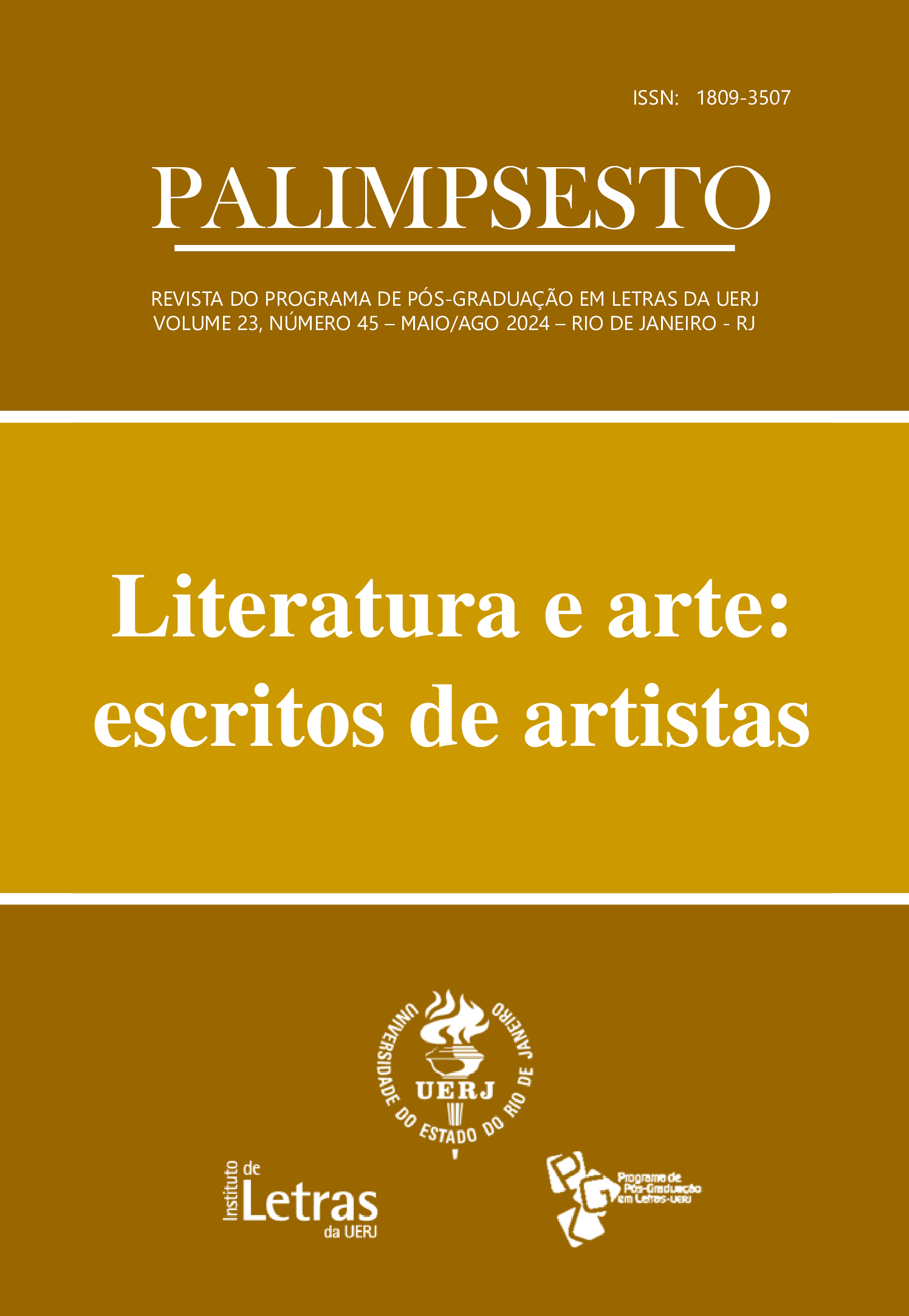Fetichismo e adultério em "Alma", de Oswald de Andrade
DOI:
https://doi.org/10.12957/palimpsesto.2024.79386Palavras-chave:
adultério, modernização conservadora, Alma.Resumo
O presente artigo busca investigar a novela Alma, primeira parte de Os condenados, no que concerne à configuração temática do adultério representada através do fetichismo pelo processo de uma modernização conservadora. Nesse aspecto, é possível compreender a crítica de Oswald de Andrade ao progresso nacional bem como verificar a desconstrução do moralismo típico associado ao patriarcalismo e ao viés religioso para lançar uma reflexão mais complexa sobre o funcionamento da sociedade. Esse aspecto revelará a importância da escritora Patrícia Galvão, a Pagu, na mudança ideológica do autor, agora associado ao comunismo e à recusa pelo desenvolvimento do capital. Deste modo, a narrativa consegue representar perspectivas diferentes sobre o tema e destaca o mérito dessa figura feminina na variação da percepção.
Downloads
Referências
ANDRADE, Oswald. Os condenados: a trilogia do exílio. 4. ed. São Paulo: Globo, 2003.
BENJAMIN, Walter. Passagens. Trad. Irene Aron. Belo Horizonte: Editora UFMG, 2006.
CANDIDO, Antonio. Os parceiros do Rio Bonito: estudo sobre o caipira paulista e a transformação dos seus meios de vida. São Paulo: Duas Cidades, 1971.
BRITO, Mario da Silva “O aluno de romance” In: ANDRADE, Oswald. Os condenados: a trilogia do exílio. 4. ed. São Paulo: Globo, 2003.
JÚNIOR, Wagner Fredmar Guimarães. O enquadramento realista de Oswald de Andrade e os impasses da modernização nos anos 30 (Tese de doutorado) – UFMG. Belo Horizonte, 2022.
OLIVEIRA, Francisco. Crítica à razão dualista: o ornitorrinco. São Paulo: Boitempo, 2013.
SCHWARZ, Roberto. Que horas são?: ensaios. 2 ed. São Paulo: Cia das letras, 2006.
VÁZQUEZ, Adolfo Sanchez. Ética. Rio de Janeiro: Civilização Brasileira, 2003.
Downloads
Publicado
Como Citar
Edição
Seção
Licença
A revista Palimpsesto publica artigos e resenhas inéditos, referentes as áreas de Letras e Linguística. Publica volumes mistos e/ou temáticos, com artigos e resenhas em português, inglês, espanhol e francês.
Autores mantêm os direitos autorais e concedem à revista o direito de primeira publicação, com o trabalho simultaneamente licenciado sob a Licença Creative Commons Attribution, que permite o compartilhamento do trabalho com reconhecimento da autoria e publicação inicial nesta revista.

Palimpsesto utiliza uma Licença Creative Commons - Atribuição-NãoComercial 4.0 Internacional.







